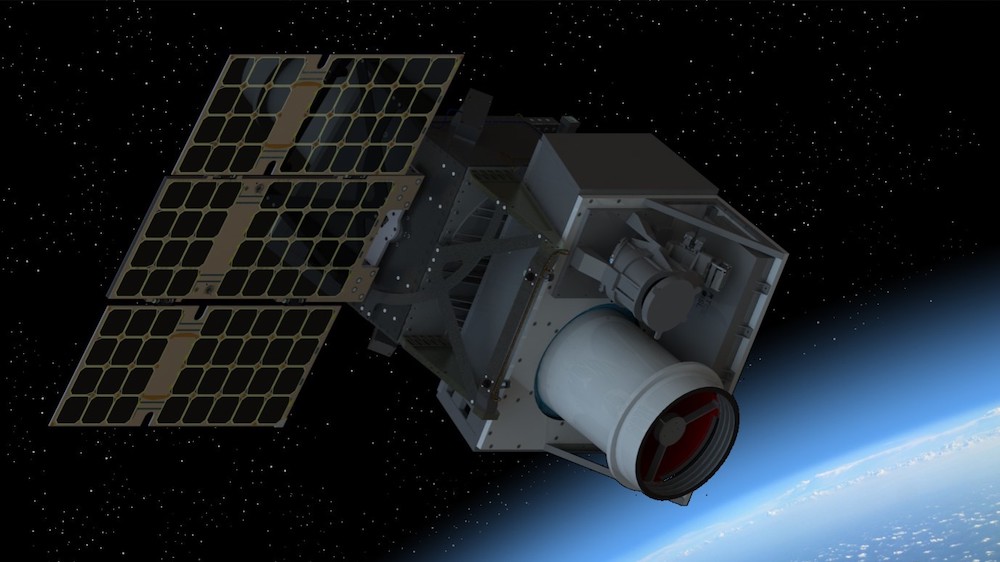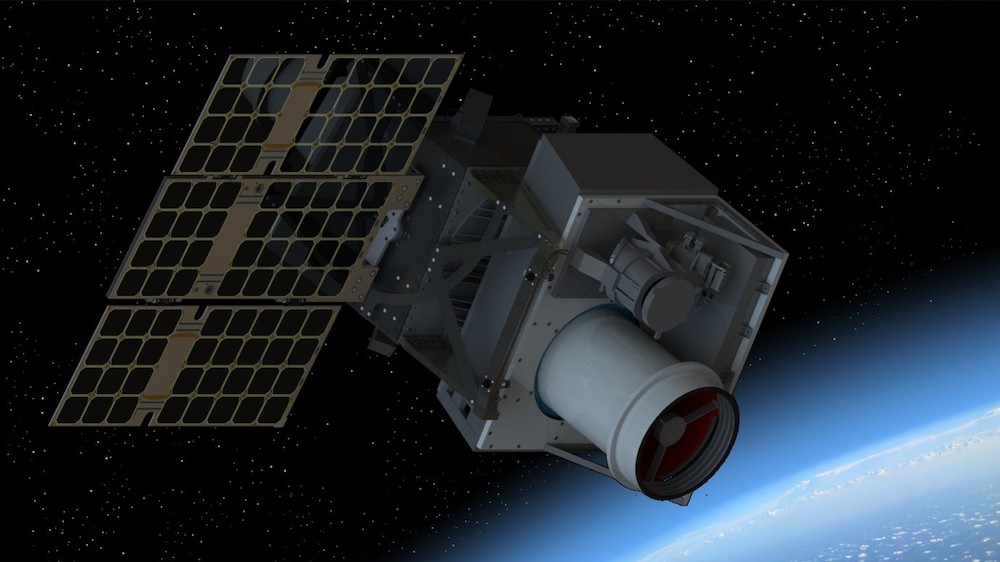
Blue Canyon Technologies' foundational support of the YAM-4 spacecraft will make the access to space for this type of demonstration less expensive and quicker to launch, allowing Canadian scientists to study how QKD behaves in space. (Photo: Business Wire)
Small satellite manufacturer and mission services provider Blue Canyon Technologies (BCT) has been selected by Loft Orbital to develop and build the YAM-4 spacecraft bus for the Quantum Encryption and Science Satellite (QEYSSat) mission.
The QEYSSat mission is being led by the Canadian Space Agency (CSA) and Honeywell. The CSA awarded Honeywell a $30 million dollar contract for the design and implementation phases of the mission. The mission will demonstrate the use of advanced encryption technology, also known as quantum key distribution (QKD), in space for secure online communications on Earth. According to CSA, this QKD technology will create encryption codes that are virtually unbreakable, allowing for more secure communications in the age of quantum computing.
“Having a secure communication infrastructure is critical in this day and age,” says George Stafford, President and CEO of Blue Canyon Technologies. “Our foundational support of the YAM-4 spacecraft will make the access to space for this type of demonstration less expensive and quicker to launch, allowing Canadian scientists to study how QKD behaves in space.”
The satellite will be designed using BCT’s newest X-SAT line of spacecraft, specifically the X-SAT Venus-Class which can carry payloads up to 90 kg. As with other BCT X-SAT buses, the X-SAT Venus-Class is a high-agility platform, enabling the onboard instrument to collect data and revisit sites frequently. The X-SAT Venus-Class’s compact profile is designed to maximize the volume, mass and power available for the CSA mission.
“BCT is a best-in-class bus provider and we are confident in their ability to deliver a spacecraft that meets the unique performance requirements of this mission,” said John Eterno, VP Missions at Loft Orbital.
The benefits of QEYSSat will be substantial. Because encryption keys cannot be compromised, they are virtually impossible to crack, and integration this technology into Canadian communications networks would guarantee the privacy of public, private and commercial data. While ground-based QKD devices are available for use today, their capabilities are limited: current systems rely on cables to transmit quantum particles on land, but the signals can become unreliable over long distances. To provide the capacity across long distances, even globally, the network must be able to use satellites in lieu of cables.
Blue Canyon’s diverse spacecraft platform has the proven capability to enable a broad range of missions and technological advances for the New Space economy, further reducing the barriers of space entry.
BCT is currently building more than 60 spacecraft for government, commercial and academic missions. The company has doubled in size over the past 12 months and recently opened its new 80,000-square-foot headquarters and satellite constellation production facility in Jun
The QEYSSat mission is being led by the Canadian Space Agency (CSA) and Honeywell. The CSA awarded Honeywell a $30 million dollar contract for the design and implementation phases of the mission. The mission will demonstrate the use of advanced encryption technology, also known as quantum key distribution (QKD), in space for secure online communications on Earth. According to CSA, this QKD technology will create encryption codes that are virtually unbreakable, allowing for more secure communications in the age of quantum computing.
“Having a secure communication infrastructure is critical in this day and age,” says George Stafford, President and CEO of Blue Canyon Technologies. “Our foundational support of the YAM-4 spacecraft will make the access to space for this type of demonstration less expensive and quicker to launch, allowing Canadian scientists to study how QKD behaves in space.”
The satellite will be designed using BCT’s newest X-SAT line of spacecraft, specifically the X-SAT Venus-Class which can carry payloads up to 90 kg. As with other BCT X-SAT buses, the X-SAT Venus-Class is a high-agility platform, enabling the onboard instrument to collect data and revisit sites frequently. The X-SAT Venus-Class’s compact profile is designed to maximize the volume, mass and power available for the CSA mission.
“BCT is a best-in-class bus provider and we are confident in their ability to deliver a spacecraft that meets the unique performance requirements of this mission,” said John Eterno, VP Missions at Loft Orbital.
The benefits of QEYSSat will be substantial. Because encryption keys cannot be compromised, they are virtually impossible to crack, and integration this technology into Canadian communications networks would guarantee the privacy of public, private and commercial data. While ground-based QKD devices are available for use today, their capabilities are limited: current systems rely on cables to transmit quantum particles on land, but the signals can become unreliable over long distances. To provide the capacity across long distances, even globally, the network must be able to use satellites in lieu of cables.
Blue Canyon’s diverse spacecraft platform has the proven capability to enable a broad range of missions and technological advances for the New Space economy, further reducing the barriers of space entry.
BCT is currently building more than 60 spacecraft for government, commercial and academic missions. The company has doubled in size over the past 12 months and recently opened its new 80,000-square-foot headquarters and satellite constellation production facility in Jun




 IonQ Achieves Industry Leading Performance on Next Generation Barium Qubits
IonQ Achieves Industry Leading Performance on Next Generation Barium Qubits